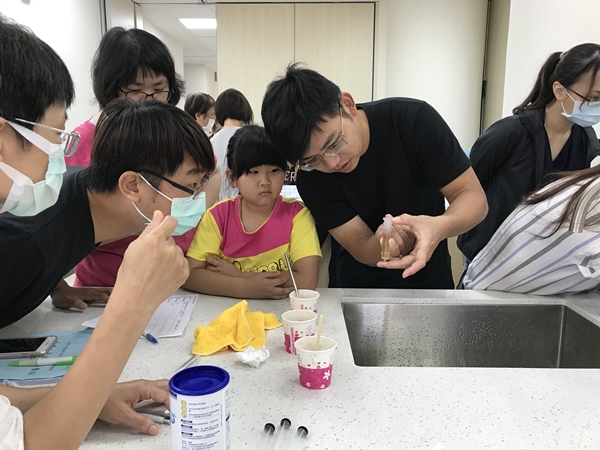Southern Taiwan University of Science and Technology undertook the "Senior Care Workers' Dietary Nutrition Training Program" by Health Bureau of the Tainan City Government. In the first and third weeks of August, the two-day senior care personnel's dietary nutrition training program was held. All levels of senior care personnel who take care of the elderly comprehensively improved their knowledge for practical ability and jointly enhanced their nutritional care capabilities.

[Participants attend classes at Southern Taiwan University of Science and Technology for Tainan City Government's senior care personnel's dietary nutrition training program.]
Senior care in the elderly society is oriented toward many needs. In the past, the knowledge and skills of dietary nutrition have relied on medical staff nutritionists to check and provide services. However, dietitians are limited in manpower and cannot meet actual needs. In the current long-term care system, evaluation specialists and case manager are mainly responsible for assessing the senior care needs, while the care attendants are responsible for providing meal preparation, feeding, etc., improving the knowledge and practical ability of the senior care personnel at all levels and giving the care recipients the best dietary and nutritional care. All these are currently very important tasks contributing to disease conditioning, anti-aging, and stumble-preventing, and improving the quality of life of the elderly.

[Practice of the Swallowing and Eating Course in the Community Kitchen of Southern Taiwan University of Science and Technology]
Since Southern Taiwan University of Science and Technology organized the diet and nutrition training workshop last year, it has been well received by all walks of life. This year, the Bureau of Health, Tainan City Government, actively applied for the renewal of this activity. After the introduction of the activity guide, it received enthusiastic responses from all walks of life within two weeks. More than 380 people signed up to participate, but due to the focus of the workshop and the limitations of space and equipment, each stairway can only accommodate 40 students. Therefore, many senior care workers were not invited to attend, which showed that the demand for this work is quite urgent.

[Practice situation of the students' dietary intake assessment course in the community kitchen of Southern Taiwan University of Science and Technology]
The course theme of the first day of this workshop was "All-round Nutrition Assessment," including the physiological changes and nutritional needs of elderly subjects, body position measurement, biochemical indicators, clinical signs, diet intake and physical fitness testing, food substitution tables, and nutrition Knowledge transfer and practical operation of bad screening tools. The theme of the second day of the course was "Texture-Adjusted Diet and Tube-filled Diet," which included understanding chewing and swallowing difficulties, international and domestic food texture grading systems, tube-filling ingredients to technology, understanding of commercially available commercial formulas, and allowing students to actually use food Thickeners and food shaping materials used to prepare meals and stir natural food materials. The full 16-hour course was co-led by Associate Professor Chiao-Zhen Peng, Director Mei-Yuan Liu of the Nutrition Department of Chi Mei Hospital, and Mei-Yu Tu, Chief Officer of the Nutrition Department of Chi Mei Hospital.

[Practice of the tube irrigation course in the community kitchen of Southern Taiwan University of Science and Technology]
Associate Professor Chiao-Zhen Peng said that Southern Taiwan University of Science and Technology had begun to build the Elderly Welfare Building with high standards when it established the Department of Senior Welfare Service. The first floor is planned as a "community kitchen," which can provide 40 people with meals, nutrition education, and training or activities. Participants also expressed that the content of this activity was substantial, with in-depth teaching for practical purposes; the activity design was lively and interesting, coupled with the latest and beautifully completed first-class venues and well-planned moving lines. It is indeed an excellent training course. It is hoped that the organizer can keep it working so that more senior care workers can improve their nutritional knowledge and upgrade the health care of the elders in Tainan City.